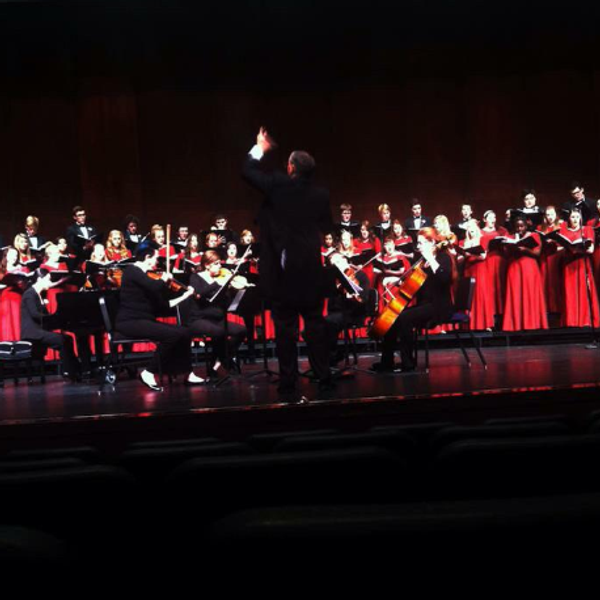I am double majoring in Molecular Bioscience and Violin Performance at Arizona State University. That first major doesn't confuse people. Not everyone knows exactly what it entails, but hey, science is a thing people do in college. It makes sense.
Not so much with music. When it comes to the pursuit of an instrument or composition, people start asking questions. Let's start with my favorite one:
1. "That's a major?"
I get this question about once every month. A significant percentage of students seems to be both unaware of the music school (which is impressive, seeing as the music building at ASU looks like a giant cake and is pretty noticeable) and shocked to find out that music is something that one can or even needs to study. A much larger percentage is fully aware of the hypothetical existence of the Music Degree, but doesn't consider it a "real major," and will be taken by surprise when coming across a real-live Musician in the wild.
2. "It must be nice not having to take real classes."
Wrong. The determination of what a "real" class (or major) is, seems to be an issue of contention when it comes to the arts, musical and otherwise, but the insane workload is very, very real. Theory classes involve just as much problem solving as Organic Chemistry (I know this firsthand), Music History is exactly what it sounds like, and rehearsals/recitals/concerts/studio/masterclasses/etc are nerve-wracking tests of endurance and skill. Yes, even if we are sitting in an orchestra while "normal" people sit in lecture, we are working hard. I'm expected to practice four to six hours a day on my studio work. FOUR TO SIX HOURS. That's outside of class, outside of orchestra rep, outside of any other homework time. So although the bulk of our workload is very different from that of most college students, it's by no means less extreme.
3. "It's good that you have a backup option!"
As a double major, this conversation comes up a lot. And I get it; performing arts jobs are hard to come by consistently. The starving musician stereotype exists for a reason. When people hear that a violinist can get paid $275 for a two-hour gig, they start questioning all they've ever known about the performance industry, but the key here is that those opportunities are not 45-hour work week jobs. They come about all too rarely. So especially adults tend to commend me on having a "sensible" backup option for getting a job in the biological sciences. But I wouldn't be doing bio if I didn't have a passion for it. No one goes into the music program for the money. But I also won't put away my violin case after grad school and think: "okay, time to make money with a safe job." The dream is always to get paid for doing what you love, and in this case there just happen to be two things I love doing.
4. "Ugh, my schedule this semester sucks..."
At the risk it sounding too much like "I have it so much worse than you," I need to vent about the music major schedule. At Arizona State, our first mandatory class is two semesters of Music Theory. Which is scheduled at 7:30 a.m. Every single morning. For two semesters. The next year is better, it's only at 9 five days a week now. A lot of the credit hours are also understated, to stay within the legal guidelines set for total credit hours in a degree program. This means that ensemble rehearsal, which happens for an hour and 45 minutes three times a week, counts as one credit hour. Oh, and these classes have some of the strictest attendance policies that exist. I missed a dress rehearsal last year because I slept through my alarm, and had to drop the class as a result so as not to fail. Many music majors won't graduate in four years because of the amount of classes to take, so hearing "aw mannn, I have class on Fridays" from our non-music colleagues probably won't evoke that much sympathy.
5. "Hey, wanna hang out today?"
This is actually something we love hearing, but the answer will probably be "no, I gotta practice." Maybe in five years?





















